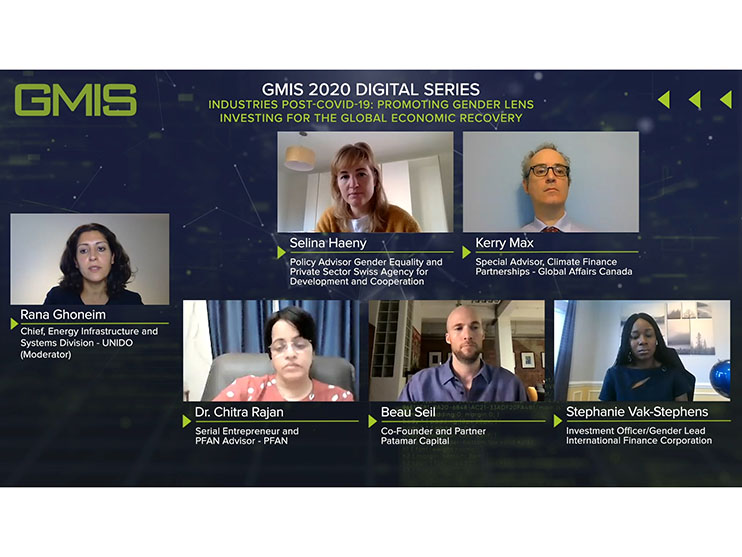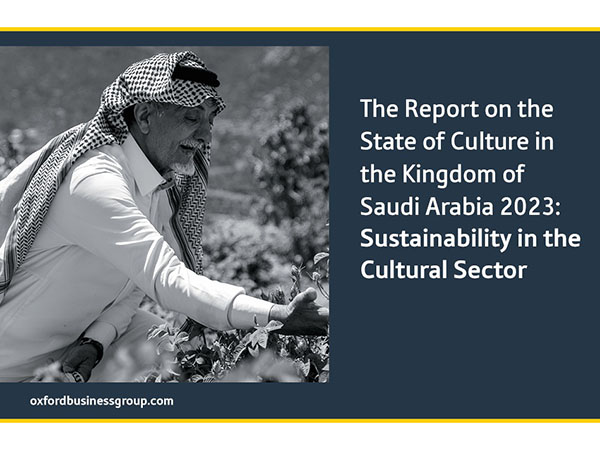News - News In Brief
Gender Lens Investing Vital to Global Economic Recovery
December 1, 2020
.jpg) Advertisement
AdvertisementThe COVID-19 pandemic has widened the gap in existing inequalities and obstacles to women’s empowerment and entrepreneurship, further endangering progress on a host of international development frameworks such as the Sustainable Development Goals and the Paris Climate Agreement. However, an expert panel on at the Global Manufacturing and Industrialisation Summit’s #GMIS2020 Digital Series found that applying a gender lens approach to investment can both accelerate gender equality and provide significant returns on investment worldwide.
Moderator Rana Ghoneim, Chief of the Energy Systems and Infrastructure Division at UNIDO, introduced the panel entitled ‘Industries Post COVID-19: Promoting Gender Lens Investing for the Global Economic Recovery’, noting that the burden of COVID-19 had fallen disproportionately on women due to social norms and cited the 'United Nations’ Women Rise for All initiative’ to put women’s leadership at the heart of the international recovery effort. “To support these efforts, gender-responsive approaches like gender lens investing are essential in both the immediate response and longer-term recovery solutions to global challenges, such as the COVID-19 pandemic,” said Ghoneim. “They’re crucial for mitigating disproportionately negative effects on women, as well as increasing resilience to future shocks, by supporting a more stable and inclusive public and private sector,” she concluded.
Beau Seil, Co-Founder and Partner at Patamar Capital, and a gender lens investor, defines gender lens investing as “backing companies that have been primarily focused on women and girls” and pushing “for different practices within your firm, whether it’s equality within the workplace or board representation.” In his experience, many women entrepreneurs tend to underestimate their company’s potential growth but eventually end up outperforming other companies. Unlike an investor applying a gender lens approach, a traditional investor could easily overlook these opportunities. Seil highlighted that analysing gender patterns and gender biases will allow them to identify undervalued opportunities, resulting in better investment and portfolio management decisions, and improved returns for investors. “It’s actually creating better companies,” concluded Seil.
Selina Haeny, Policy Advisor for Gender Equality and the Private Sector at the Swiss Agency for Development Cooperation (SDC), underlined that gender lens investing is a crucial tool for achieving the Sustainable Development Goals, while stressing that SDG 5 on gender equality is currently gravely underfunded in comparison to the other Goals. She underlined that SDC incentivises partners in the private sector, and particularly in fintech, to actively reach out to women, foster financial inclusion and yield better financial investment for women. Haeny added that many of the COVID-19 frontline jobs, such as healthcare occupations, employ mostly women. It is important to address systemic issues in this regard - “I think the two main important things are to invest in better working conditions for health workers and to look into unpaid care work and really value the work that women do,” she concluded.
Stephanie Vak Stephens, Investment Officer and Gender Lead at the International Finance Corporation (IFC), added that women often work in sectors hardest-hit by COVID-19, such as administration and retail. But even those women who are able to work remotely are feeling the compounded hardships brought about by the pandemic and lockdown measures due to the fact that women are disproportionately burdened with unpaid domestic care work. “The ones who will be able to stand during this pandemic need some form of bridge capital or additional financing to be able to transition to business models where they’re digitising their operations or quickly adopting technology,” emphasised Vak Stephens. She added that capital providers need to examine their lending practices to ensure that women entrepreneurs are targeted or that women are well-represented in the businesses supported.
Kerry Max, Special Advisor, Climate Finance Partnerships, Global Affairs Canada, cited there are systemic financing gaps of trillions of US dollars in implementing the Paris Climate Agreement, the Sustainable Development Goals and responses to the COVID-19 pandemic which cannot be plugged by Official Development Assistance (ODA) streams alone, and require blended finance instruments. He said that the Canadian Development Finance institution, established in 2018, had deployed concessional loans and repayable contributions, as well as climate trust funds with international partners. “Donors have to use innovative finance and in particular risk-sharing, a blend of public and private funds to mobilise all investors, from impact investors to institutional investors, to get from the billions to the trillions that we need,” said Max. He added that Canada has a feminist international policy, aiming to incentivise partners to use gender lens investing in reducing inequalities and promoting women’s empowerment.
Dr. Chitra Rajan, Serial Entrepreneur and Advisor, Private Financing Advisory Network (PFAN), stated that the pandemic has affected women entrepreneurs in two ways: it reduced their economic independence and added to their workload, giving rise to long-term socioeconomic consequences. “Women are reluctant to invest because they don’t want to risk so much money and this pandemic has accelerated the situation, where they are a lot more risk-averse to the decision of getting into business,” said Dr. Rajan. She fears these negative effects of the pandemic will persist for decades. Invoking her personal experience of applying for credit, Dr. Rajan said that despite credentials, know-how and experience, businesswomen often found themselves subjected to sexist questioning. “We can very clearly see that there’s a bias in the mind of investors when they talk to a woman with a view to talking to a man,” she asserted.
Concluding, Rana Ghoneim stressed the need to address systemic vulnerabilities and inequalities affecting women, partnerships for women-led industrial initiatives, amplifying the data on the benefits of gender lens investing and for governments and multilateral organisations to provide targeted capacity-building initiatives for women.



.jpg)










